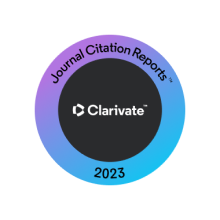Abstract
Background: Ramadan fasting is an important worship activity for Muslims. It is not known if fasting could have deleterious effect on cardiac patients joining cardiac rehabilitation (CR) program, especially during summer season.
Aim: To assess the effect of Ramadan fasting on biochemical and exercise parameters among patients undergoing 12- week exercise-based CR program. Patients and methods: 53 patients joining CR program in university hospital were included in the study. The patients were divided into two groups according to their Ramadan fasting status. Fasting group included 32 patients, while nonfasting group included 21 patients. All patients underwent supervised exercise-based CR during the month of Ramadan. Plasma osmolality, blood urea and serum creatinine were assessed before CR and during the last week of Ramadan. Lipid profile, echocardiography and exercise parameters were assessed before and after CR program.
Results: The two groups were similar in baseline characteristics including: risk factors, osmolality, urea, creatinine, lipid profile and hemoglobin values, as well as ejection fraction and exercise parameters. After the program, both groups showed significant improvement in ejection fraction, total cholesterol, LDL and HDL levels. There was also improvement in duration of exercise reached and achieved METs before and after CR program in both groups. An important notice was that fasting did not significantly influence plasma osmolality in either group.
Conclusion: Ramadan fasting did not change serum osmolality or negatively affect the results of CR among cardiac patients. It appears to be safe to undergo exercise-based CR during Ramadan even in summer season.
Recommended Citation
Khorshid, Hazem; Shabana, Adel; Rifaie, Osama; and Abdellatif, Yasser
(2020)
"Impact of Ramadan Fasting on Biochemical and Exercise Parameters among Patients Undergoing Exercise-based Cardiac Rehabilitation,"
Journal of the Saudi Heart Association: Vol. 32
:
Iss.
2
, Article 30.
Available at: https://doi.org/10.37616/2212-5043.1105
Creative Commons License

This work is licensed under a Creative Commons Attribution-Noncommercial-No Derivative Works 4.0 License.




